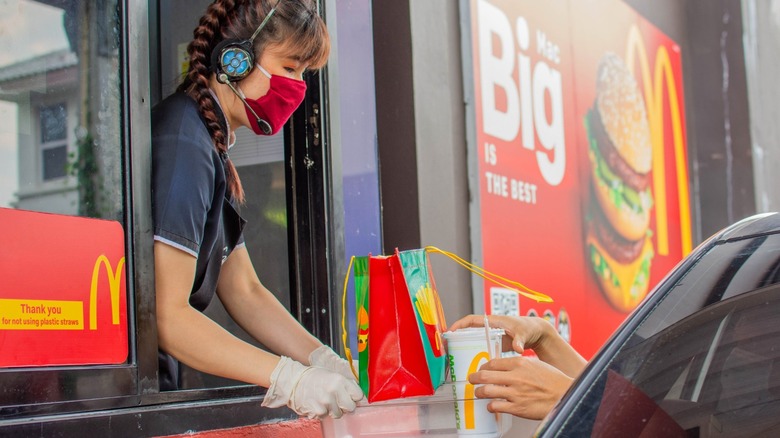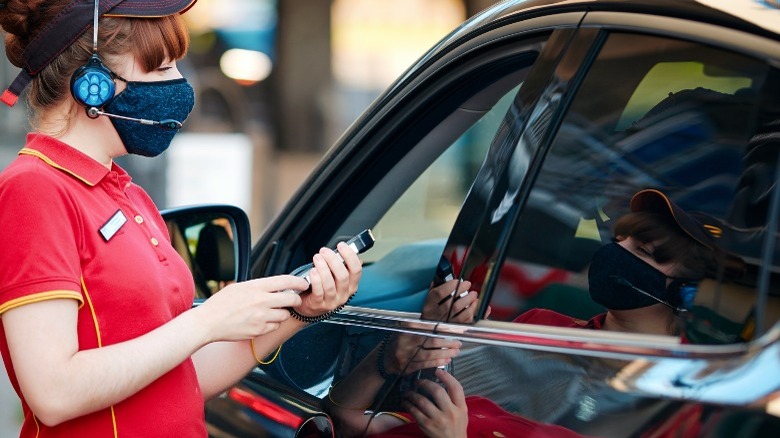Fast Food Employees Are Secretly Annoyed When You Do This
Fast food and service industry workers are warriors of patience and soldiers of self-restraint. Dealing with the worst of the human condition day in and day out can feel wearing on a person who's just trying to do their job. Something you may not know about fast food employees is that they make up 28% of the total United States population, per Statista, and are among the lowest financial earners in the country, The Balance Money reported. Employees from fast food restaurants made an average annual wage of $13,500 in 2018, proving that the industry simply hasn't kept pace with rising prices due to inflation.
Recently, costs have gone up for ingredients and their distribution, prompting a rash of angry customers to take out their rage on the person working the counter, Business Insider explained. From complaints about the price of their meal, to gripes about the appearance of their food, to harassing the employees to work faster, the individuals who commandeer your fast food experience put up with a lot.
Even well-intended customers can dip into disrespectful territory when they order fast food. In fact, sometimes the politest customers can be the most annoying, according to Reader's Digest.
Fast food workers think first names are a faux pas
Don't step into the pitfalls of rudeness when ordering at the fast food counter. Reader's Digest reported that fast food employees are put off by customers who speak to them in an overly-familiar manner. In fact, employees who wear name tags would rather you didn't refer to them by their first name, period. This gesture of "force familiarity" can be irksome for complete a stranger who has no interest in a reciprocal relationship.
Forbes reported that name tags serve multiple purposes in the fast food setting. For example, workers who wear them are accountable for their actions because their names are displayed on their shirts. Customers can also better identify positive experiences when there's a name associated with the employee who assisted them.
However, some service industry experts cite reasons that fast food workers should not wear name tags. When customers don't know the name of the person across the counter, there is a larger gap between the person ordering and the person taking the order. The dynamic is more of a "peer-to-peer" situation than an artificial arrangement.

